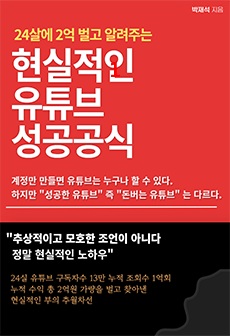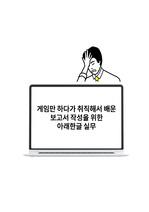* 본 문서는 배포용으로 복사 및 편집이 불가합니다.
서지정보
ㆍ발행기관 : 한국교육학회
ㆍ수록지정보 : 교육학연구 / 33권 / 3호
ㆍ저자명 : 임철일
ㆍ저자명 : 임철일
목차
요약Ⅰ. 문제의 제기
Ⅱ. 교수설계이론의 처방적/절충적 특성
Ⅲ. 형성적 연구방법론의 기원과 특성
Ⅳ. 형성적 연구방법론의 적용 연구와 그 제안점
Ⅴ. 형성적 연구방법론의 새로운 구체성: 단계별 연구방법
Ⅵ. 결론
참고문헌
Abstract
한국어 초록
본 연구는 교수설계이론의 한가지 대안적 연구방법론으로써 제안된 형성적 연구방법론 (Formative research methodology)의 기원과 발전을 비판적으로 검토하고 새로운 방법론적 특성을 모색하였다. 전통적인 실험연구법과는 달리 형성적 연구방법론은 교수설계이론의 처방성과 절충성을 반영하며, 이론의 개선을 목적으로 하는 연구에 이용될 수 있는 것으로 제안되었다. 일종의 사례연구방법으로써 형성적 연구방법론을 이용한 선행연구의 방법론적 제안을 중심으로 새로운 구체성을 다음 세가지 단계에 걸쳐서 논의하였다 - ① 교수프로그램 설계 및 개발, ② 교수프로그램의 실행/자료수집, ③ 참가자 의견의 분석, 제안된 방법론적 특성을 중심으로 후속 연구가 수행되어 방법론적 신뢰성과 타당성 측면을 고양시킬 필요가 있다. 이러한 과정은 결과적으로 교수설계이론의 개선 노력에 공헌하게 된다.영어 초록
This study examines formative research as an alternative research methodology for improving instructional-design theories. The research methodology was proposed by Reigeluth(1989). He argued that instructional-design theory is prescriptive, and synthesis and optimality are two major directions for instructional-design theory to strive for. Thus, the issue in instructional-design theory does not lie in 'proving' but in 'improving.'
Experimental research approach is not relevant for 'improving' instructional-design theories.
The process of formative evaluation in systematic design of instruction (Dick & Carey, 1985) provided an idea to construct a research methodology to improve instructional-design theories. The formative evaluation process is utilized to improve a draft of instructional products. The formative research methodology was originated from the formative evaluationm
process, and the methodology consists of two steps. First, design and develop an instructional product solely on the basis of an instructional model. Second, conduct a series of one-on-one formative evaluation of that product (Reigeluth, 1989).
Some empirical studies using formative research methodology were conducted (Roma,l990; Simmons, 1992; Lim, 1994). As the methodology was proposed in terms of its basic steps, those studies identified methodological problems and implemented new solutions. They were as follows: ① The first problem was about the amount of the instructional unit to be examined at once. More than one and half hour for an instructional activity was too long to continue. When an instructional activity was finished, both researcher and participant felt tired. They could not begin debriefing session fresh and fair. A solution for this problem was to divide the whole instruction into segments (around 50-60 minutes) and have a debriefing session (around 20-30 minutes) after each segment. ② The type of open-ended questions during the debriefing session needed to change. The question type was effective to gather information regarding the theory improvement. However, there were low frequency for each category of participants' comments, and it made difficult to generalize their comments. Thus, it was suggested that a specific set of questions should be developed before the study begins. It can be used after open-ended questions are asked.
③ The way of interaction between researcher and participant was pointed out to change. It was found that active interaction between participants and researcher during the instructional activity came to inhibiting the learning process by the participant. The active interaction should be restricted within debriefing session. ④ It was found that the establishment of secured research site and technological supports such as video recorder was crucial to the successful implementation of the study. A closed room for observing instruction and having a debriefing session is preferable. ⑤ Finally, the use of 'think-aloud' technique was found to be less effective because it was used only by highly-talented participants and inhibited their learning process.
Based upon the findings and suggestions from the previous studies, this study proposes methodological changes in terms of three steps of the research procedure: the design and development of instructional program, the implementation of the program and data collection, and the analysis of participants' comments. Regarding the design and development of instructional program, the study should clarify what aspects of the instructional program are not based upon the theory to be examined. It will make the discussion of the study focusing on the theory not on other theories. In the implementation of the program and data collection, four aspects of the methodology can be suggested : ① the implementation of the instructional program and debriefing session should be limited less than 1 hour and 30 minutes respectively; ② the interaction between researcher and participants should be restricted to during debriefing session; ③ the debriefing session should be divided into two steps -- first step with open-ended questions and second step with specific questions; ④ finally, the data can be collected from instructors and instructional designers as well as from learners. The analysis of participants' procedure can be divided into threes steps: data reduction, data categorization, and data display.
These new methodological suggestions should be constantly examined and improved to secure its methodological reliability and validity for improving instructional-design theories.
참고 자료
없음태그
"교육학연구"의 다른 논문
 CAI를 이용한 개별화 수업 시스템의 설계를 위한 원리의 구안25페이지
CAI를 이용한 개별화 수업 시스템의 설계를 위한 원리의 구안25페이지 코스웨어의 효과에 대한 메타분석29페이지
코스웨어의 효과에 대한 메타분석29페이지 교사교육의 연구동향18페이지
교사교육의 연구동향18페이지 고등학교 평준화 정책 수정의 논리와 문제점15페이지
고등학교 평준화 정책 수정의 논리와 문제점15페이지 학교 효과성 결정요인에 관한 탐색적 연구28페이지
학교 효과성 결정요인에 관한 탐색적 연구28페이지 교육과정 내에서 교과들간의 갈등관계 분석22페이지
교육과정 내에서 교과들간의 갈등관계 분석22페이지 가정과 직장, 조화된 양립은 불가능한가?15페이지
가정과 직장, 조화된 양립은 불가능한가?15페이지 국민학교 아동의 수 표상 기준에 관한 연구20페이지
국민학교 아동의 수 표상 기준에 관한 연구20페이지 학습전략훈련이 학습장애자의 수학 학업성취, 자기조정, 충동성 및 자기효능감에 미치는 효과27페이지
학습전략훈련이 학습장애자의 수학 학업성취, 자기조정, 충동성 및 자기효능감에 미치는 효과27페이지 인지사회적 관점에 의한 인간행동과 교육의 새로운 이해27페이지
인지사회적 관점에 의한 인간행동과 교육의 새로운 이해27페이지


























